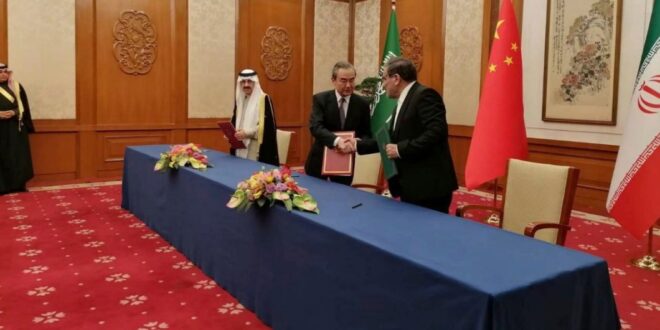Last Friday, Saudi Arabia and Iran announced that they have reached an agreement to reestablish diplomatic ties and reopen their respective embassies in two months’ time. The agreement, which was mediated by China and announced at a signing ceremony in Beijing, comes after a seven-year diplomatic rift that began in 2016, when Saudi Arabia executed a Shiite cleric, Sheikh Nimr al-Nimr, on terrorism charges, and Iranian protesters stormed the Saudi Embassy in Tehran in reaction.
Nimr had been an outspoken advocate for Shiite rights in Saudi Arabia, including access to oil revenue, and a vocal critic of the royal family. The Saudi authorities arrested him in 2012, accusing him of spreading sectarian strife and creating instability. Iranian media embraced him as a hero, then as a martyr after his execution in 2016.
Rather than signaling a resolution of the regional conflicts fueled by the enmity between Riyadh and Tehran, the new agreement can be read as a response by Saudi Arabia to what it sees as lukewarm support by the U.S. on countering Iran. It is also a pragmatic move by China to safeguard its interests in the Middle East.
 Eurasia Press & News
Eurasia Press & News




